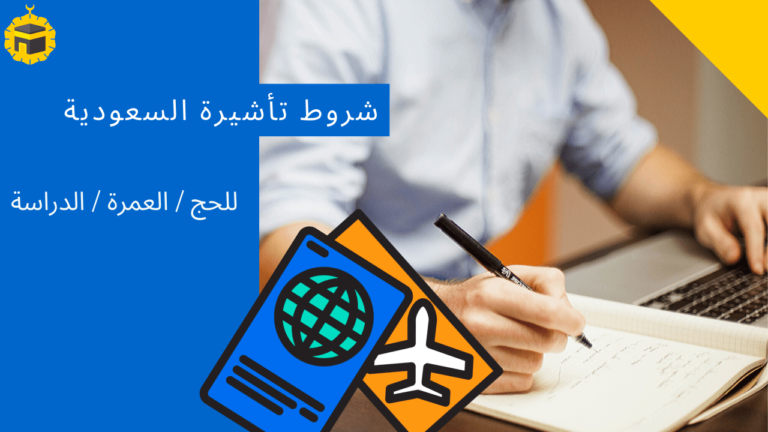Praise be to Allah.
– Before you start explaining we inform you that there are 3 ways to learn for the student :
Studying in the University
Distance study – with a recognized certificate
- Learning from educational platforms :
Courses and specialized educational courses paid and free .

In this section we will explain the first method :
Many students dream of continuing their studies in other countries outside their home countries either convinced that this will open them to greater horizons to develop their possibilities and the acquisition of education and increase employment opportunities, or because they want to experience new experiences and specializations not available in their countries, we offer you on this page A comprehensive guide to how to study abroad and what it takes, we hope you benefit from the information.
Table of Contents
General information about studying abroad and its requirements :
A student wishing to study abroad should think carefully about his or her own potential and qualifications. There are many students who are unable to undertake such an experience either because they lack the expertise or sufficient material resources. Even if these possibilities and qualifications are available to the student concerned, it is likely that he, like all expatriates, will face some problems when arriving in the foreign country, problems related to language and adaptation and a sense of alienation and isolation and nostalgia for parents and homeland
The best way to study abroad is to get a scholarship when you excel in a university major. It is true that there are few scholarships, but there is no better way to study abroad.
– The pursuit of graduate study abroad requires many banks, and the availability of the candidate on adequate resources is a prerequisite for acceptance of his nomination by the institution selected.
– Candidates must carry out the registration procedures early according to the dates and deadlines set for each country.
– Final registration of study abroad does not mean obtaining a visa, the latter requires special conditions, the most important of which is to prove financial ability.
– Most countries do not grant scholarships, therefore, the student must cover the expenses of transportation, accommodation, study, medical and other needs.
– Candidate must ensure that the academic certificates that are available in accordance with what is required to join the institution and the desired section.
– It should be noted that the lifestyle in Western countries is quite different from the usual student in his country, as he must manage his own affairs such as taking care of his home and paying bills and managing his budget and other things that were the responsibility of his parents or guardian, as the study abroad imposes new responsibilities.
– Candidates should keep original copies of documents, certificates, diplomas and identification cards, and make certified copies, where appropriate, of diplomatic or other representations, unless otherwise stated.
Higher education systems in Saudi Arabia are compatible with the graduate system in the United States, but have been adapted to the traditions and culture of the Middle East. King Saud University, founded in Riyadh in 1957, is the first university in Saudi Arabia. The Ministry of Higher Education supervises everything related to higher education in this Asian country, with special emphasis on scientific research in public universities. More than 200,000 students are currently studying in Saudi universities and colleges, half of them women.
Advantages of studying in Saudi Arabia
International students are welcomed to study in Saudi Arabia and the government provides special scholarship programs for non-Saudi students. Studying in this country ensures an authentic Arabic culture and full contact with Arabic, which is very important for students coming from outside the Middle East or non-Arabic speakers. Modern Saudi universities have a wide range of master’s degree programs in Arts, Science, Engineering, Agriculture, Medicine, Education, Computer Science and Information Technology. Many master’s degree programs are taught in English, particularly for technical areas such as engineering.
Universities in Saudi Arabia
The higher education system comprises 21 public universities, 19 male teacher colleges, 80 female teacher colleges, 38 health colleges and institutes, 12 technical colleges and 24 private universities and colleges. These colleges offer postgraduate programs covering both master’s and doctoral degrees. Private universities and institutions are not-for-profit organizations and operate in complementarity with public universities. Most public universities are public universities, but some are specialized in specific fields such as oil and health.
Tuition fees and duration of programs
For citizens of Saudi Arabia, higher education is free, including books. Many international students also study for free. For example, all students admitted to KAUST receive a scholarship that covers housing, medical, dental and $ 30,000 annual living expenses.
college year
The first semester starts in early September and lasts until early December, followed by a final exam. The second semester begins in early February and lasts until early May and concludes with a final exam as well.
Opportunities after graduation
There are many job opportunities after graduation in Saudi Arabia, both for Saudi and international students. Saudi Arabia employs close to 8 million foreign workers – although most are in the manual labor sector – but this does not negate the existence of many job opportunities for graduates with a master’s degree in the oil and financial industries. Information technology, healthcare, education, construction and communications are among the areas most in demand for foreign employees.
Foreign students wishing to remain in Saudi Arabia must first find work, and here the employer will apply for a suitable work permit.
health insurance
The laws of Saudi Arabia require that all foreigners have health insurance, which means that a student who does not have health insurance in his country must join a health insurance plan before reaching Saudi territory.
If you want to study in Saudi Arabia, here is the most important information you may need in the study guide in Saudi Arabia if you choose to pursue your career in Saudi Arabia.
Apply to universities in Saudi Arabia
The requirements for applying to study in Saudi Arabia vary according to each university. However, applicants are generally required to demonstrate previous academic qualifications and degrees; proof of proficiency in English (or Arabic in some programs) with TOEFL / IELTS certificates, as well as official identification and passport photos.
Tuition and cost of living
Tuition fees are set by each university, which means prices vary widely from one university to another
There are no university buildings in Saudi Arabia, so international students usually rent private accommodation. Housing fare can be fairly expensive, ranging from SR 3,500 ($ 800) to SR 4,500 ($ 1,050) for a small apartment in Riyadh, and prices are cheaper the more you venture to rent away from the city center. It is also recommended to take into account the amount of $ 50-100 per day
Student Visa
If you want to study in Saudi Arabia, you will need to obtain a visa before entering the country, regardless of who you are or from which country you come from. This seems simple but difficult to implement, due to strict restrictions on tourists and travelers. The following documents are usually required for a visa :
– Notarized approval to accept a university program at a recognized Saudi university. Original birth certificate.
– A health report proving your good health and signed by a licensed doctor.
– Pay all visa fees and related.
– Police report on your criminal history.
– Approval of travel from your state government.
The student visa holder will not be allowed to work in Saudi Arabia while studying, but if you wish to stay in the country, the student will find a good range of job opportunities after graduation.
Tips on planning to study abroad
Before joining the course, please have the necessary documents such as the certificate “English language” strongly recommend you visit the link below and then study all the course and course until you get a certificate.
Also read :
A note about working in Saudi Arabia :
The General Directorate of Saudi Passports asserts that anyone who assists the violators of the residency and work systems exposes himself to imprisonment for up to 6 months and a fine of up to SR 100,000 and deportation.
The Directorate said in a statement that the penalty will be imposed on those who transfer or employ violators of the residence and work systems or cover up or shelter them or provide any means of assistance to them.
فرص عمل في السعودية
https://cvmkr.com/?lang=ar
https://aitnews.com/2018/02/13/لينكدإن-تكشف-عن-أكثر-الوظائف-طلبًا-في-ا/
vedeo ايجاد العمل بواسطة تطبيق linkedin
كيف تحصل على عمل دون خبرة عملية سابقة؟ إليك الخطوات
https://maqraa.islamacademy.net/?lang=en
استمارة طلب خط
باقات الزوار لشرائح هاتف النقال
https://www.sa.zain.com/autoforms/portal/site/personal/voice_plans/hajj_promotions
اهم ما يحتاجه المسافر قبل السفر:
صلاة الاستخارة cv + بدلة رسمية و قميص ابيض و كرافات و حذاء+ les papier ميلاد …. + دواء اذا كان عندك + الديبلوم +
شهادة حسن السيرة و السلوك
وثائق جنسية و غيرها من الوثائق
وثائق اثبات الخبرات
شهادة طبية صادرة من مركز حكومي
حاسوب صغير (لطلب العمل مثلا انولاين/تعديل السيفي/ ترسل الايميلات)
ابرة و خيط





